Shortly after his firing from UK space rock pioneers Hawkwind, Ian ‘Lemmy’ Kilmister adopted the biker motto ‘Born to Lose, Live to Win’ and made it his new band’s mission statement. As luck (both good and bad) would have it, he would spend the next few years living both sides of that creedo, earning the right to make it his own every day while struggling to get his new band, Motorhead, off the ground.
Motorhead was doomed from day one. But Motorhead was also destined for greatness. Lemmy knew both of these statements to be true even at the very beginning. Motorhead survived more drama and disaster in their first few years of existence than most bands suffer in decades, all through the sheer force of one man’s will. Lemmy’s bold self-belief, dogged perserverance, and abject refusal to give up and go home kept Motorhead alive during the nearly complete clusterfuck of their first three years.
Of course, being 49% motherfucker and 51% son of a bitch didn’t hurt either.
Born To Lose: In May of 1975, Lemmy is arrested at the Canadian border for possession of amphetamine sulfate. Management bails him out and puts him on a flight to Toronto. At 4am after the Toronto show, he is fired from the band he once performed with on Top of the Pops, singing lead on their Top Ten (#3) single ‘Silver Machine’ in 1972.
Live To Win: Within two weeks of returning to England, Lemmy steals his equipment back from Hawkwind’s rehearsal space, repaints his psychedelic amps black, and forms a band he calls Bastard. He retains his Hawkwind-era manager, who persuades him to change the name. He re-christens his new band Motorhead, naming it after the last song he wrote for his previous band.
BTL: In July, Motorhead’s live debut takes place at the Roundhouse, a high-profile UK venue. Lemmy himself states the band were “bloody awful”. After a 10-show trek across Britain in August, the band opens for Blue Oyster Cult at the Hammersmith Odeon in October. In December, based on the Hammersmith performance, Motorhead wins “Best Worst Band in the World” in the reader’s poll featured in the year-end issue of the respected UK music paper Sounds.
LTW: Motorhead manages to secure a record deal with Hawkwind’s label United Artists. Dave Edmunds, one of Lemmy’s heroes, is set to produce. The band prep their originals and a few covers and enter the studio In December.
BTL: After recording only four songs, Edmunds abandons the project. Drummer Lucas Fox, trying to keep up with Lemmy’s speed habit, is a disaster in the studio. His drum tracks are not workable and his behavior is erratic, even dangerous; he is fired before the record is complete.
LTW: 21 year old drummer Phillip Taylor is drafted in as Fox’s replacement. Taylor overdubs all of Fox’s drum tracks (except one) and the album is completed with producer Fritz Freyer.
BTL: United Artists shelve the album, deeming it ‘unfit for release’. Motorhead, still under contract with UA, cannot record for another label. In the Spring of 1976, immediately after Lemmy drafts Eddie Clarke in to the band as rhythm guitarist; Larry Wallis quits.
LTW: Motorhead hire a new manager, who arranges another recording. In July, Kilmister/Clarke/Taylor record a single for Stiff Records, ‘White Line Fever’/’Leaving Here’.
BTL: Motorhead are still under contract with United Artists, who block the release of the Stiff single. Motorhead have now recorded music for 2 labels and neither label has released anything. They limp through the rest of 1976 with one-off gigs, living in squats and starving. Just a few months into 1977, Phil and Eddie decide to call it a day.
LTW: A farewell performance is booked at the Marquee in London in April ’77. Lemmy convinces Ted Carroll of Chiswick Records to record the show in a last-ditch attempt to get anything with the Motorhead name on it released.
BTL: The mobile studio promised by Carroll never materializes at the Marquee gig; the farewell show is not recorded.
LTW: Carroll shows up backstage after the show and by way of apology, offers the band 2 days of studio time to record a single. The band instead record basics for 11 songs, and their single deal with Chiswick becomes an album deal. Carroll gave the band the cash to complete the unfinished tracks, with which Motorhead records 2 additional songs, for a total of 13. The album, called ‘Motorhead’, released in August of 1977, peaked at #43 in the UK.
BTL: About a week into the headlining tour to promote their ‘debut’ album, Phil Taylor breaks his wrist in a fight and the rest of the tour is cancelled. The band is unable to do any live work until a November gig at the Marquee. Motorhead’s manager cuts ties with Chiswick, citing lack of support, and the band, in turn, fires him. Phil and Eddie throw together another band, The Muggers, and once again consider leaving Motorhead.
LTW: Motorhead hire manager Doug Smith, who secures the band a deal with Bronze Records for a single. In August 1978, ‘Louie Louie’/’Tear Ya Down’ was released, and hit #68 on the UK Singles chart. The success of the single resulted in Morohead’s first appearance on BBC TV’s Top of the Pops program. It was Lemmy’s 2nd appearance on the show, his first having been to promote Hawkwind’s ‘Silver Machine’.
So: After three years of struggle, Lemmy had come full circle. He had dragged himself and his new band through a minefield of bad deals, bad breaks and plain old bad luck. Lemmy never wavered. Each and every time he was kicked, he kicked back; every setback was met with a grim determination and a raised middle finger. Lemmy made his own good luck by constantly pushing against any and all obstructions, ignoring his detractors and doing plenty of good old fashioned hustling.
All of this led up to their watershed moment: the release of their seminal ‘Overkill’ album. Lemmy (and Motorhead) ultimately won. Of course, all of the rejected material that was recorded during this time period was eventually released by labels eager to cash in on the Motorhead’s chart success a few years later. Hawkwind has even re-released ‘Silver Machine’ 3 times, and each time it has charted again. Lemmy of course never saw a dime from any of this thievery, but the vindication is priceless. As if the ongoing success of Motorhead, some 40 years on now, weren’t vindication enough.
The lesson in all this? As the slogan on the back side of the picture sleeve for the ‘Louie Louie’ single reads, “NIL ILLEGITIMUM CARBORUNDUM”.
Don’t let the bastards grind you down.
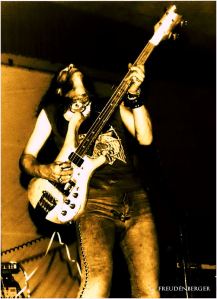
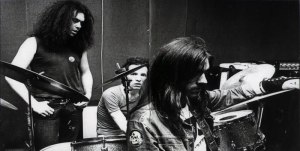
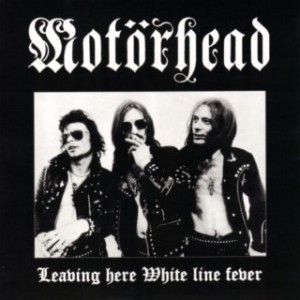
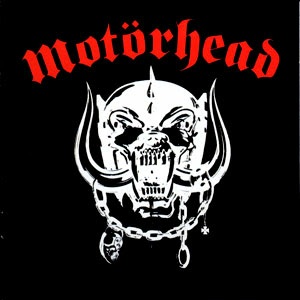
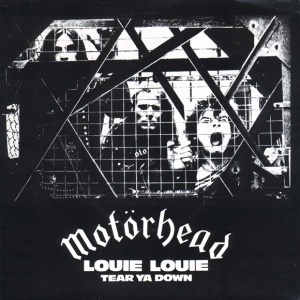
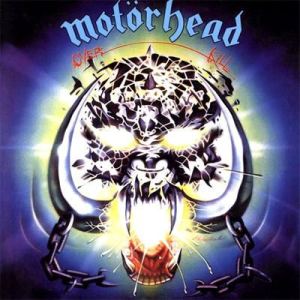
I remember that gig very well, partly because of Motorhead’s diabolical performance and someone dressed in a KKK hood..for a young Black woman in the NF seventies, a bit scary.
BOC actually began as a pissed-take of mindless heavy rock, but were very good and quite sophisticated, so they eventually embraced the heavy rock scene. Lemmy claims they were sabotaged by BOC, no sound check.
Motorhead were awful, hen the audience grew ugly Lemmy shouted “We may not be the best band in the world, but we’re the fucking loudest”…followed by an ear-drum piercing minute of feedback. It wasn’t nice, in retrospect I guess it helped to reinforce his bad-boy image. R.I.P. Lemmy